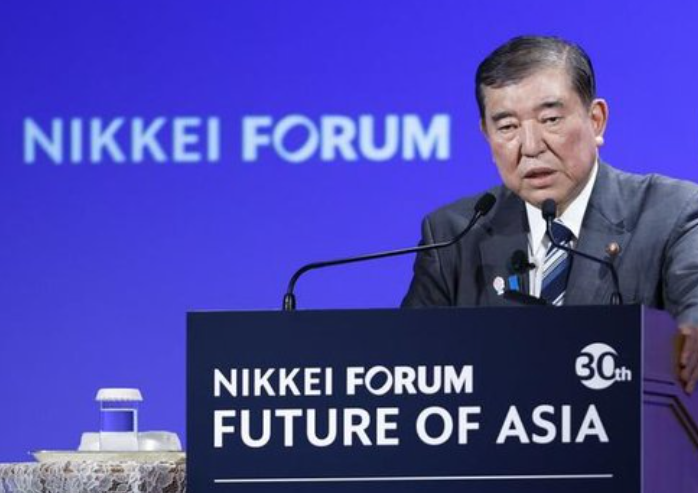TOKYO – The 30th Future of Asia Conference, organized by Nikkei Inc. in Tokyo from May 29 to 30, brought together leaders from across Asia and beyond in a tense climate of global uncertainty. Against the backdrop of economic instability, geopolitical rifts, and the resurgence of protectionism, delegates called for deeper regional solidarity to safeguard the continent’s future.
Japan’s Prime Minister Shigeru Ishiba, in a stark keynote, warned that the world is teetering on a historic turning point, drawing parallels with the turbulent early 20th century. “A stable international order is no longer a given,” he said, urging Asian nations to forge stronger cooperative frameworks amid mounting challenges such as war, pandemics, and economic fragmentation.
Hope Amid Headwinds: Voices from Across Asia
Despite mounting concerns, speakers also voiced optimism about Asia’s potential. Nobel Peace Prize laureate and interim Bangladeshi leader Muhammad Yunus described Asia as both “the epicentre of uncertainty” and of immense opportunity. Cambodian Prime Minister Hun Manet, while acknowledging a brief border skirmish with Thailand on May 28 that left one Cambodian soldier dead, emphasized that the region remains “relatively peaceful and prosperous — for now.”
Meanwhile, Jin Liqun, President of the China-led Asian Infrastructure Investment Bank, stressed that Asia’s economic momentum remains resilient, even if global headwinds persist. “Asia can maintain its growth regardless of what’s happening in the rest of the world,” he stated.
Tariff Shockwaves: Trump’s ‘Liberation Day’ Measures Take Center Stage
A dominant concern at the conference was the disruptive impact of U.S. President Donald Trump’s sweeping new “Liberation Day” tariffs, which have stunned global markets. Announced in April and temporarily paused for 90 days, the tariffs range from 10% to 50% and target over 100 U.S. trading partners — a direct affront to the rules-based global trading system.
Former Malaysian Prime Minister Mahathir Mohamad criticized the move in blunt terms, declaring: “Trump has made the whole world the enemy.” His comments reflected widespread alarm among Asian leaders about the reemergence of unilateralism and the potential for economic fragmentation.
Small and developing nations appear to be hit hardest. Laotian President Thongloun Sisoulith revealed that Laos, subject to a 48% tariff, has yet to receive a response to its request for negotiations with Washington — even as heavyweight economies such as the EU, China, and Japan engage directly with the U.S.
Call for a Cooperative Future
As the conference closed, the consensus was clear: the so-called “Asian Century” will not be realized through passive optimism but requires active, principled cooperation across borders.
The forum underscored the urgency of defending multilateralism, protecting smaller economies, and avoiding escalation — both in trade and military tensions. Whether Asia leans into conflict or chooses collaboration may well define the global order in the decades ahead. (zai)

